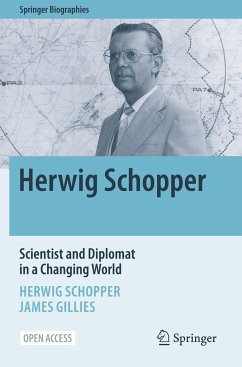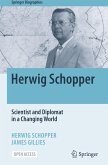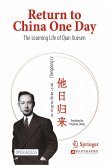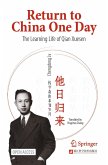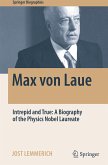This open access book is both a memoir and a biography. Born in Czechoslovakia in 1924, Herwig Schopper is one of the few people able to bear witness to 100 years of European history. His career has taken him from research to management to diplomacy, with a major part devoted to, and inspired by, CERN.
Herwig enjoyed a rich childhood, spending his summers at his grandparent's hotel on the Adriatic coast. It is there that he developed an interest in physics though eavesdropping on holidaying professors from Budapest and Belgrade who conversed in German. His youthful idyll was shattered by the annexation of the Sudetenland, which lead to him serving in the Luftwaffe signals corps. Working as a translator for the British administration in Hamburg after the war, he also enrolled at the University and was soon granted leave to travel outside Germany for his research. So began a long string of professional relationships with leading scientists of the day: LiseMeitner, Otto Frisch, Bob Wilson, Chien Shiung Wu, Masatoshi Koshiba and Sam Ting to name but a few. Herwig came to consider them all as friends.
Through his long career, Herwig has played a leading role in institutions from Erlangen to Karlsruhe, and from DESY, where he was director from 1973 to 1980, to CERN, where he served as Director-General from 1981 to 1988. Since its foundation CERN has had two major missions: to conduct first-class scientific research and to foster peaceful relations between nations. Following this example Herwig has played a key role in pioneering the deployment of science for peace, notably through the SESAME laboratory in the Middle East. This book gives a full account of Herwig's rich and varied life and concludes with his reflections on the challenges that society faces today.
Herwig enjoyed a rich childhood, spending his summers at his grandparent's hotel on the Adriatic coast. It is there that he developed an interest in physics though eavesdropping on holidaying professors from Budapest and Belgrade who conversed in German. His youthful idyll was shattered by the annexation of the Sudetenland, which lead to him serving in the Luftwaffe signals corps. Working as a translator for the British administration in Hamburg after the war, he also enrolled at the University and was soon granted leave to travel outside Germany for his research. So began a long string of professional relationships with leading scientists of the day: LiseMeitner, Otto Frisch, Bob Wilson, Chien Shiung Wu, Masatoshi Koshiba and Sam Ting to name but a few. Herwig came to consider them all as friends.
Through his long career, Herwig has played a leading role in institutions from Erlangen to Karlsruhe, and from DESY, where he was director from 1973 to 1980, to CERN, where he served as Director-General from 1981 to 1988. Since its foundation CERN has had two major missions: to conduct first-class scientific research and to foster peaceful relations between nations. Following this example Herwig has played a key role in pioneering the deployment of science for peace, notably through the SESAME laboratory in the Middle East. This book gives a full account of Herwig's rich and varied life and concludes with his reflections on the challenges that society faces today.

